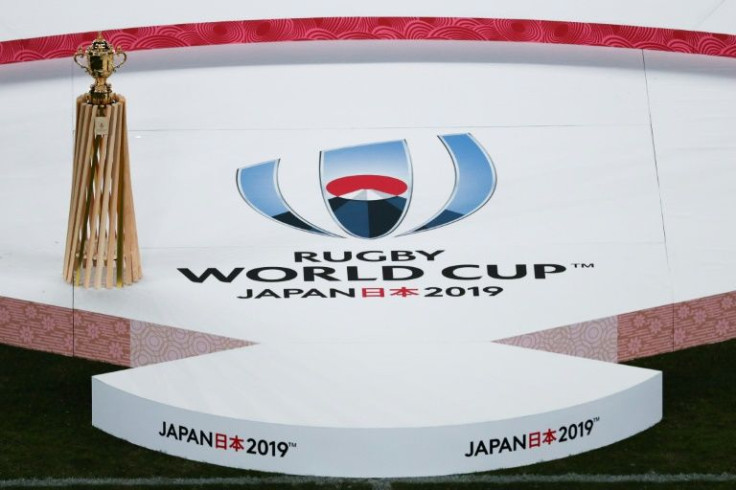Rugby Opens New Frontier By Picking US As World Cup Hosts
International rugby chief Bill Beaumont said Thursday the sport would have a crack at the "golden nugget" after the World Cup was awarded to the United States for the first time.
The US will stage both the 2031 men's and 2033 women's tournaments while Australia will hold the men's World Cup in 2027 and the women's tournament two years later. England have been named as hosts of the 2025 women's tournament.
By taking the showpiece event to North America, as opposed to a traditional rugby territory, officials hope to make a dent in a lucrative market dominated by home-grown sports such as American football, baseball, basketball and ice hockey.
"For the USA to have the certainty of two World Cups, men's and women's, will enormously help the game in the USA to grow," World Rugby chairman Beaumont told a news conference in Dublin.
Beaumont, speaking after the global governing body confirmed the hosts for the next five World Cups, said the United States was seen as the "golden nugget that everybody wants to get hold of".
"It is, probably, the world's biggest sporting market," the former England captain added. "It has a huge amount of fantastic athletes, men and women, who probably don't really see a lot of rugby.
"What this will do, it will give an opportunity to many, many people, girls and boys, men and women, to appreciate our great game.
"When we leave the USA, what we will leave is an extremely sustainable, vibrant sport that will go from strength to strength."
USA Rugby chief executive Ross Young said staging the two World Cups would be a "paradigm-shifting catalyst for the growth of our sport".
World Rugby did not spring any surprises with their announcements on Thursday.
Officials were determined to avoid a repeat of the situation when South Africa was chosen as the preferred venue for the 2023 World Cup by an independent assessment panel only to lose out in a subsequent vote to France.

The hope is that by 2031 the Eagles -- as the US men's team are known -- might be competitive enough to match the achievement of 2019 hosts Japan, another emerging rugby union nation.
Japan reached the last eight of their home World Cup three years ago in a tournament won by South Africa.
The Eagles, however, have yet to qualify for next year's World Cup in France, with the team facing Chile in a two-legged qualifier in July.
In order to help boost the standard of emerging countries such as the United States, officials are trying to restructure the existing international calendar to ensure they have more meaningful games between World Cups -- a thorny issue since the sport turned professional in 1995.
World Rugby chief executive Alan Gilpin said there was a "massive focus" on making sure "the USAs, the Japans, the Fijis, and the Uruguays and that next group of emerging nations get the competition they need and deserve to make them more competitive in the big moments".
Australia last staged the World Cup in 2003, when the Wallabies were beaten in the final by England.
Eddie Jones, the then Australia coach, is now in charge of England.
"We're beyond thrilled to be welcoming not one, but two Rugby World Cups to our shores," said Rugby Australia chairman Hamish McLennan, adding the tournaments would be "a once-in-a-generation opportunity" to revitalise the game.
The England women's team, on a run of 23 successive victories, are huge favourites to win this year's coronavirus-delayed World Cup in New Zealand, the home of the reigning champions.
Sue Day, the chief operating officer of England's Rugby Football Union, and herself a former England captain, said: "As we have seen from other home World Cups in cricket, hockey and netball, a World Cup will further advance all women's sport."
© Copyright AFP 2024. All rights reserved.





















